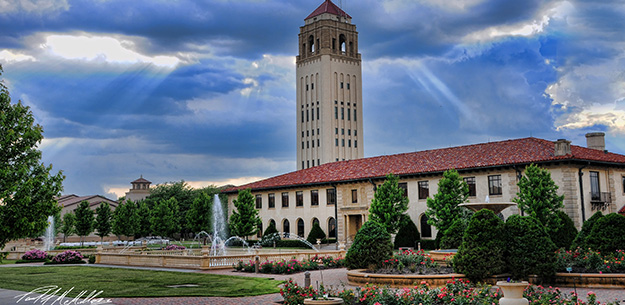The Unity Movement
The Unity Movement
The Unity movement was born out of a profound personal healing experience by Myrtle Fillmore in the late 19th century. In the 1880s, Myrtle was diagnosed with tuberculosis, a condition deemed incurable at the time. Seeking hope and healing, she attended a lecture by E.B. Weeks, a metaphysical teacher, who introduced her to the idea that health and well-being could be achieved through positive thinking and affirmation.
During the lecture, Weeks shared a powerful affirmation that deeply resonated with Myrtle: “I am a child of God, and therefore I do not inherit sickness.” Embracing this affirmation, Myrtle began to meditate on it daily, cultivating a deep sense of divine health and wholeness within herself. Over time, her consistent practice of affirmative prayer led to a complete and miraculous recovery from her illness.

Inspired by Myrtle’s healing, she and her husband, Charles Fillmore, delved into the study of spiritual principles and metaphysical teachings. They believed that the same divine potential that brought about Myrtle’s healing could be accessed by anyone. In 1889, they began sharing their insights through the publication “Modern Thought,” which later became “Unity Magazine.”
In 1891, the Fillmores formally established the Unity movement, founding the Unity School of Christianity. Their teachings emphasized the power of affirmative prayer, the presence of the divine within every person, and the universal truths found in all major religions. They created “Silent Unity,” a prayer ministry that offers support and healing prayers to people worldwide, continuing to embody the principles that healed Myrtle.
The Unity movement expanded, and Unity Village near Kansas City, Missouri, was established in the 1920s as the headquarters. Unity Village became a center for spiritual education, retreats, and a sanctuary for those seeking spiritual renewal.

Today, Unity is a global spiritual community that welcomes individuals from all backgrounds, promoting an inclusive and positive approach to spirituality. The legacy of Myrtle and Charles Fillmore lives on through Unity’s teachings, publications, and outreach programs, inspiring countless individuals to realize their own divine potential and live lives of love, peace, and abundance.
Unity of Springfield is proud to be part of this vibrant movement, continuing the Fillmores’ mission of love and spiritual growth. We offer a welcoming space for all to explore their spiritual potential and connect with a supportive community.
The Revelation That Changed Dr. Maya Angelou’s Life
SuperSoul Sunday | Oprah Winfrey Network
Dr. Maya Angelou was a renowned poet, author, and civil rights activist, known for her powerful words and profound impact on American literature and culture. In her 20s, she discovered the Unity.
Unity’s Five Basic Principles
We are not your average church. Unity does not adhere to specific dogmas, doctrines, or rituals. Instead, we offer practical Christianity through five basic principles that provide a positive path for spiritual living. These principles allow individuals to create a self-determined spiritual path within a safe and supportive community, fostering growth through freedom rather than restrictions.
Our principles provide the freedom to experience the Divine in meaningful ways. As Paul said in his letter to the Galatians, “It is for freedom that Christ has set you free.” Unity offers a community based on this freedom, using spiritual principles as a template for growth. We honor all traditions, embracing diverse paths to the Divine.
We invite you to explore Unity’s Five Basic Principles and discover how they can apply to your life, enhancing your personal spiritual journey.
Unity’s Five Basic Principles
Unity’s Five Basic Principles
We are not your average church. Unity does not adhere to specific dogmas, doctrines, or rituals. Instead, we offer practical Christianity through five basic principles that provide a positive path for spiritual living. These principles allow individuals to create a self-determined spiritual path within a safe and supportive community, fostering growth through freedom rather than restrictions.
Our principles provide the freedom to experience the Divine in meaningful ways. As Paul said in his letter to the Galatians, “It is for freedom that Christ has set you free.” Unity offers a community based on this freedom, using spiritual principles as a template for growth. We honor all traditions, embracing diverse paths to the Divine.
We invite you to explore Unity’s Five Basic Principles and discover how they can apply to your life, enhancing your personal spiritual journey.

Downloadable Five Principles Booklet
The Unity booklet, “Five Principles for Spiritual Living,” features articles that share how understanding and practicing universal spiritual principles can transform your life.
The Five Principles
Principle One
God Is…
Explanation: Unity teaches that there is only one Presence and one Power in the universe and in our lives: God, the Good, Omnipotent. This principle emphasizes the omnipresence and omnipotence of God, affirming that God is the source of all good and is present in every situation and circumstance.
Application: This belief encourages individuals to see the divine in everything and everyone, fostering a positive and inclusive worldview. It reminds us to look for the good in every situation, knowing that God is always present.
Principle Two
I Am…
Explanation: According to Unity, we are created in the image and likeness of God, and our essence is inherently good. This divine nature was fully expressed in Jesus Christ, who serves as a model for expressing our own divinity.
Application: Recognizing our divine nature empowers us to express love, wisdom, and compassion in our daily lives. It encourages us to see ourselves and others as inherently worthy and capable of spiritual growth and transformation.
Principle Three
I Ask…
Explanation: Unity teaches that our thoughts, beliefs, and attitudes shape our experiences and realities. We are co-creators with God, using the power of our minds to create our life circumstances.
Application: This principle emphasizes the importance of positive thinking and mindfulness. By consciously choosing our thoughts and beliefs, we can create a more fulfilling and harmonious life. It encourages us to take responsibility for our experiences and to use our mental and spiritual faculties constructively.
Principle Four
I Pray & Let Go…
Explanation: Prayer and meditation are essential practices in Unity, helping us align our hearts and minds with the divine. Affirmative prayer involves affirming the truth of our oneness with God and the goodness of life, while denials help us release limiting beliefs.
Application: Regular practice of prayer and meditation fosters a deeper connection with the Divine, bringing clarity, peace, and guidance. It helps us attune to our higher selves and access divine wisdom and inspiration.
Principle Five
I Act…
Explanation: Unity teaches that it is not sufficient to merely understand spiritual principles intellectually; we must put them into practice in our daily lives. Living the truth we know is essential for spiritual growth and transformation.
Application: This principle calls us to embody our beliefs through our actions, demonstrating love, kindness, and integrity in all that we do. It challenges us to walk our talk, integrating our spiritual insights into our everyday interactions and decisions.
Learn more about Unity Teachings
